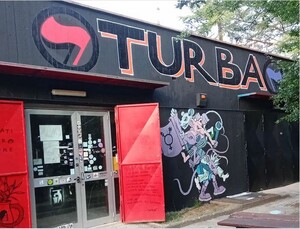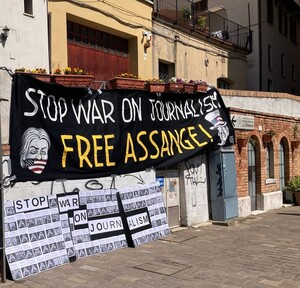Big Tech seeks to consolidate its hold on journalism

All speakers acknowledged the risk that traditional mass media runs of becoming entrapped, since Big Tech companies may soon be a primary source of revenue for them; in addition, their editorial independence is being seriously compromised as their newsrooms increasingly rely on non-transparent AI systems of article generation.
A few examples: in July, OpenAI (which produces ChatGTP software) signed an agreement with a major news agency (AP) to license its news. It subsequently allocated $5 million to get U.S. journalists and others to explore how AI "can support the news industry." Finally, publisher Axel Springer recently signed an agreement with OpenAI letting ChatGPT summarize its news stories.
Ironically, the Festival itself was sponsored by Big Tech, Google taking the lead. In its self-presentation on its “News Initiative” site, the California-based company brazenly declares that "[our] mission is to organize the world’s information and make it universally accessible and useful. . ... [Our] algorithms determine which content to show, and in which order, based on a variety of signals such as authoritativeness, relevance, freshness"… and, most likely, many other unconfessed criteria, one should add. "Google relies on two main ways to determine what news may be interesting to you”, the company goes on to explain: “you can specify the topics, locations, and sources you’re interested in, and you’ll be shown news results that relate to these selections. Additionally, our algorithms may suggest content based on your past activity on Google products.” In other words, Google traps us in a self-referential bubble while we are convinced we have access to the whole world. And Google brags about it.

In the leaflet they distributed to the participants of #ijf24, the "Activists for Assange" denounced how the judicial persecution of Julian Assange aims squarely to crush independent journalism – of which WikiLeaks is a shining example – and thus pave the way for the regimented Thought Control of AI-automated Corporate Media.
In their leaflet, on the other hand, the activists of “Spazio Turba” used sharp and witty satire to denounce Big Tech's overwhelming power over publishing. Their flyer is relatively short and deserves to be read in full:
Breaking news – Festival poisoned to death – all the facts
A dead body was found at the crack of dawn, that of the guest of honor at the Festival bearing his name: Journalism. Currently under investigation are two of the Festival's leading sponsors, Microsoft and Google.
According to the shocking revelations, the two giants, members of the GAFAM gang (the 5 largest and most influential Information & Technology companies in the world: Google, Apple, Facebook, Amazon, Microsoft) started to lure Journalism several years ago. In fact, the first attempts at poisoning the victim have a long history.
During this time, toxins were covertly administered to Journalism through subtle forms of psychological conditioning and enticing economic expectations. These took the form of business models based on data mining and user profiling, which prioritize viral response and emotional audience feedback over the quality and accuracy of articles. The addiction to these substances seriously impacted Journalism's already debilitated body. In fact, the victim had already, for some time, been grappling with a terminal neoliberal cancer, producing extremely aggressive metastases such as job insecurity, freelance piecework, underpaid contracts and other forms of labor exploitation.
The criminal plan of the two multinational technology corporations further aggravated the clinical scenario by triggering a race to arouse, capture, and monetize the attention of users. This process has taken place entirely at the expense of the quality of information made available. Today, what is rewarded is the quantity of news, its brevity, its sensationalism.
One of the favorite weapons used by the two giants has been Engagement, which, rather than informing readers, orients them and arouses feelings such as fear and hatred. As of late, Journalism became largely reduced to a continuous stream of pre-packaged, poorly researched news items, pandering to the interests of advertisers and newspaper owners.
Most recently, the final act of this murderous affair has taken place. The two suspects allegedly proposed to Journalism a fatal cocktail, "Artificial Intelligence", as a supplement to human editorial work. The poor victim was administered false reassurances about the consequences this innovation would have on the lives of industry professionals. Journalism, convinced of the need to adapt to the new technological frontiers, allegedly swallowed a fatal dose of the mix. He was found lying face down in a foaming pool of contents, advertising and big data. Attempts at reanimation by activists and independent journalists were all in vain.
Spazio Turba – Perugia – www.instagram.com/turbapg/
Sociale.network